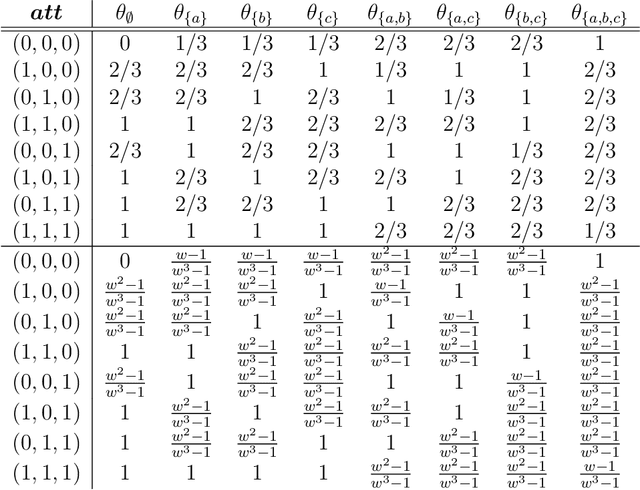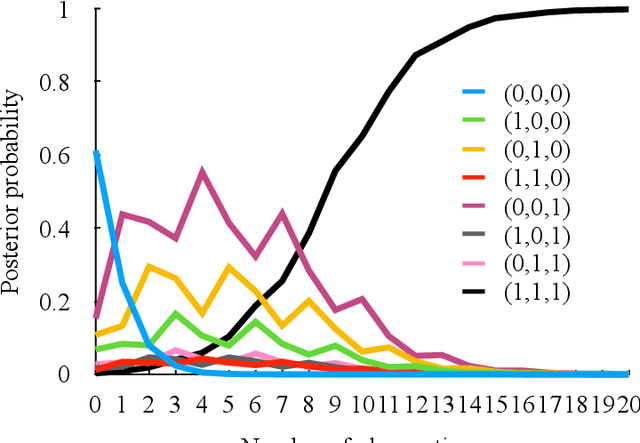A Bayesian Approach to Direct and Inverse Abstract Argumentation Problems
Paper and Code
Sep 10, 2019



This paper studies a fundamental mechanism of how to detect a conflict between arguments given sentiments regarding acceptability of the arguments. We introduce a concept of the inverse problem of the abstract argumentation to tackle the problem. Given noisy sets of acceptable arguments, it aims to find attack relations explaining the sets well in terms of acceptability semantics. It is the inverse of the direct problem corresponding to the traditional problem of the abstract argumentation that focuses on finding sets of acceptable arguments in terms of the semantics given an attack relation between the arguments. We give a probabilistic model handling both of the problems in a way that is faithful to the acceptability semantics. From a theoretical point of view, we show that a solution to both the direct and inverse problems is a special case of the probabilistic inference on the model. We discuss that the model provides a natural extension of the semantics to cope with uncertain attack relations distributed probabilistically. From en empirical point of view, we argue that it reasonably predicts individuals sentiments regarding acceptability of arguments. This paper contributes to lay the foundation for making acceptability semantics data-driven and to provide a way to tackle the knowledge acquisition bottleneck.
 Add to Chrome
Add to Chrome Add to Firefox
Add to Firefox Add to Edge
Add to Edge